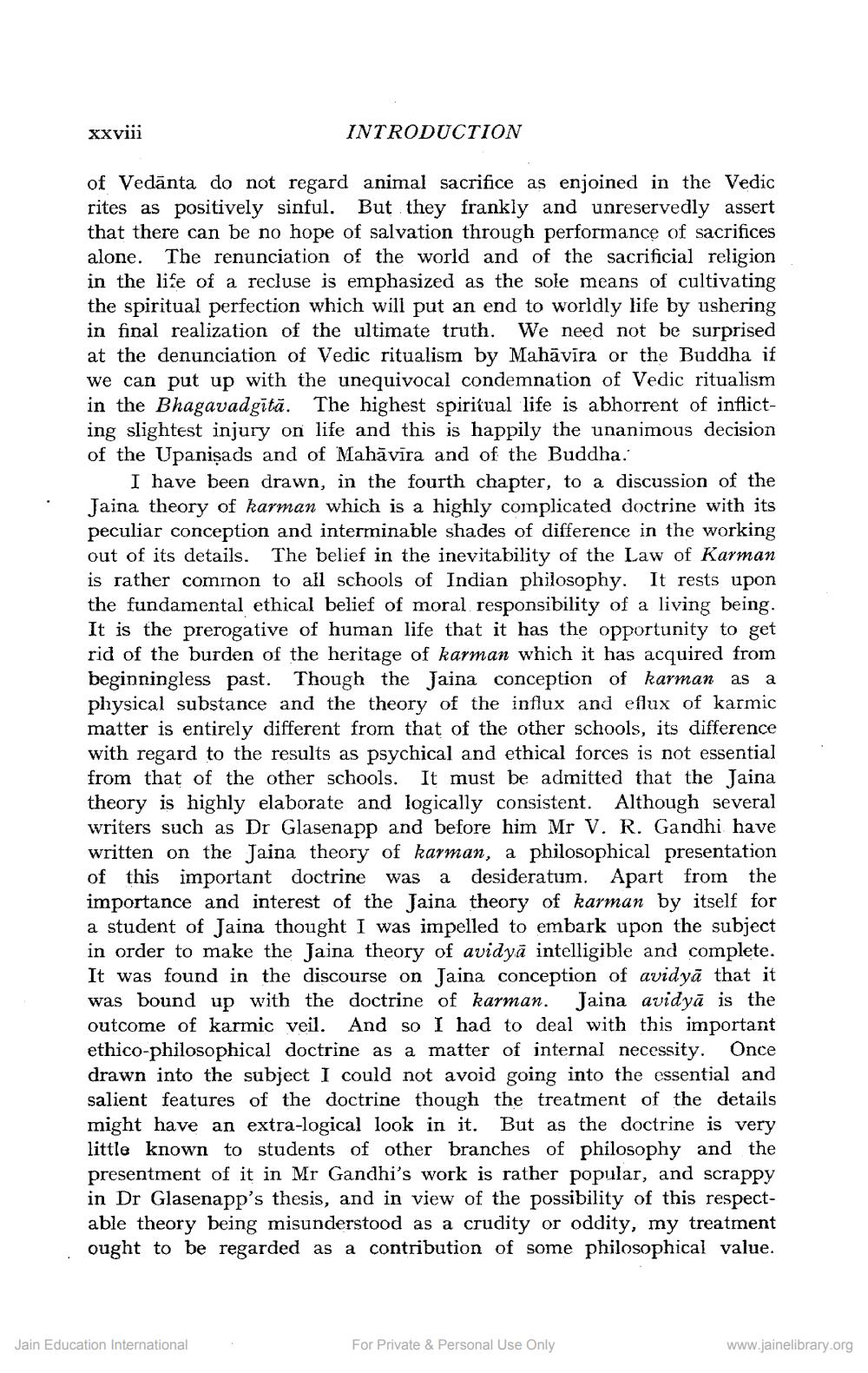________________
xxvii
INTRODUCTION
of Vedānta do not regard animal sacrifice as enjoined in the Vedic rites as positively sinful. But they frankly and unreservedly assert that there can be no hope of salvation through performance of sacrifices alone. The renunciation of the world and of the sacrificial religion in the life of a recluse is emphasized as the sole means of cultivating the spiritual perfection which will put an end to worldly life by ushering in final realization of the ultimate truth. We need not be surprised at the denunciation of Vedic ritualism by Mahāvīra or the Buddha if we can put up with the unequivocal condemnation of Vedic ritualism in the Bhagavadgită. The highest spiritual life is abhorrent of inflicting slightest injury on life and this is happily the unanimous decision of the Upanişads and of Mahāvīra and of the Buddha.
I have been drawn, in the fourth chapter, to a discussion of the Jaina theory of karman which is a highly complicated doctrine with its peculiar conception and interminable shades of difference in the working out of its details. The belief in the inevitability of the Law of Karman is rather common to all schools of Indian philosophy. It rests upon the fundamental ethical belief of moral responsibility of a living being. It is the prerogative of human life that it has the opportunity to get rid of the burden of the heritage of karman which it has acquired from beginningless past. Though the Jaina conception of karman as a physical substance and the theory of the influx and eflux of karmic matter is entirely different from that of the other schools, its difference with regard to the results as psychical and ethical forces is not essential from that of the other schools. It must be admitted that the Jaina theory is highly elaborate and logically consistent. Although several writers such as Dr Glasenapp and before him Mr V. R. Gandhi have written on the Jaina theory of karman, a philosophical presentation of this important doctrine was a desideratum. Apart from the importance and interest of the Jaina theory of karman by itself for a student of Jaina thought I was impelled to embark upon the subject in order to make the Jaina theory of avidyā intelligible and complete. It was found in the discourse on Jaina conception of avidyā that it was bound up with the doctrine of karman. Jaina avidyā is the outcome of karmic veil. And so I had to deal with this important ethico-philosophical doctrine as a matter of internal necessity. Once drawn into the subject I could not avoid going into the essential and salient features of the doctrine though the treatment of the details might have an extra-logical look in it. But as the doctrine is very little known to students of other branches of philosophy and the presentment of it in Mr Gandhi's work is rather popular, and scrappy in Dr Glasenapp's thesis, and in view of the possibility of this respectable theory being misunderstood as a crudity or oddity, my treatment ought to be regarded as a contribution of some philosophical value.
Jain Education International
For Private & Personal Use Only
www.jainelibrary.org




